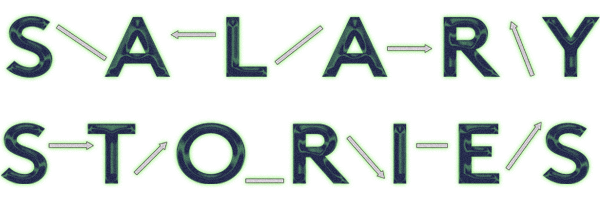ADVERTISEMENT
In our series Salary Stories, women with long-term career experience open up about the most intimate details of their jobs: compensation. It’s an honest look at how real people navigate the complicated world of negotiating, raises, promotions, and job loss, with the hope it will give young women more insight into how to advocate for themselves — and maybe take a few risks along the way.
Additionally, we are joining forces with SoFi for the next few months to bring you career tips and coaching. We got the lowdown from SoFi's career coaches who recommend:
Before a job interview, prepare ten questions to ask the hiring manager. It's okay if you already know the answers to some of them. You can learn as much from how they answer as what they say.
Been in the workforce for at least eight years and interested in contributing your salary story? Submit your information here.
Previously, we talked to a brand manager in Portland, a consumer goods sourcing manager in Minneapolis, and a records and compliance coordinator in Boulder.
Age: 33
Current Location: Seattle, WA
Current Industry & Title: eCommerce, Senior Program Manager
Starting Salary: $42,000 in 2008
Current Salary: $150,000
Number Of Years Employed: 11
Biggest Salary Jump: $40,000 in 2011 (from $43,000 to $83,000)
Biggest Salary Drop: $9,000 in 2018 (from $147,000 to $138,000; no change in base, but total compensation changed because of bonuses)
Current Location: Seattle, WA
Current Industry & Title: eCommerce, Senior Program Manager
Starting Salary: $42,000 in 2008
Current Salary: $150,000
Number Of Years Employed: 11
Biggest Salary Jump: $40,000 in 2011 (from $43,000 to $83,000)
Biggest Salary Drop: $9,000 in 2018 (from $147,000 to $138,000; no change in base, but total compensation changed because of bonuses)
Biggest Salary Negotiation Regret: "I taught for two years at a public school and then changed to a charter school. I literally did not ask about money — I was just thankful that I was offered a job and was ready to sign anything. I had absolutely no conversation about salary, benefits, retirement, or anything along those lines.
"I knew roughly what I was making because I got a paycheck every month, but my annual salary never registered until I looked at my retirement-account statement at the end of the year and realized how much I had been making — which was less than the job I had changed from.
"I was doing a lot more work, so my regret was that I never even thought to ask about salary. Looking back, there was a big mindset shift for me. Because at that point in my working life, I still thought that getting a job was a gift from an employer. It wasn’t about me bringing skills, experience, or value to my employer. So I didn’t even ask questions. Ten years later, I have a very different perspective: I know what I am worth."
Best Salary-Related Advice: "Ask for what you're worth. Women are often not socialized to advocate for ourselves, so when I say this I mean: Understand that in an employee-employer relationship, you are very valuable because you are doing the work that allows your employer to accomplish what it is they want to accomplish. Have an understanding of the job that you do, what the value and salary of that job are, and then use that as a base to have a conversation about what you are paid.
"For a long time, I felt ashamed or uncomfortable having this conversation because I came from being a teacher. But I got to a point where I realized I needed to advocate for myself and be paid for what I was worth. There is nothing wrong with asking for more money — everyone else around you is doing that, why shouldn’t you?"
ADVERTISEMENT
ADVERTISEMENT







